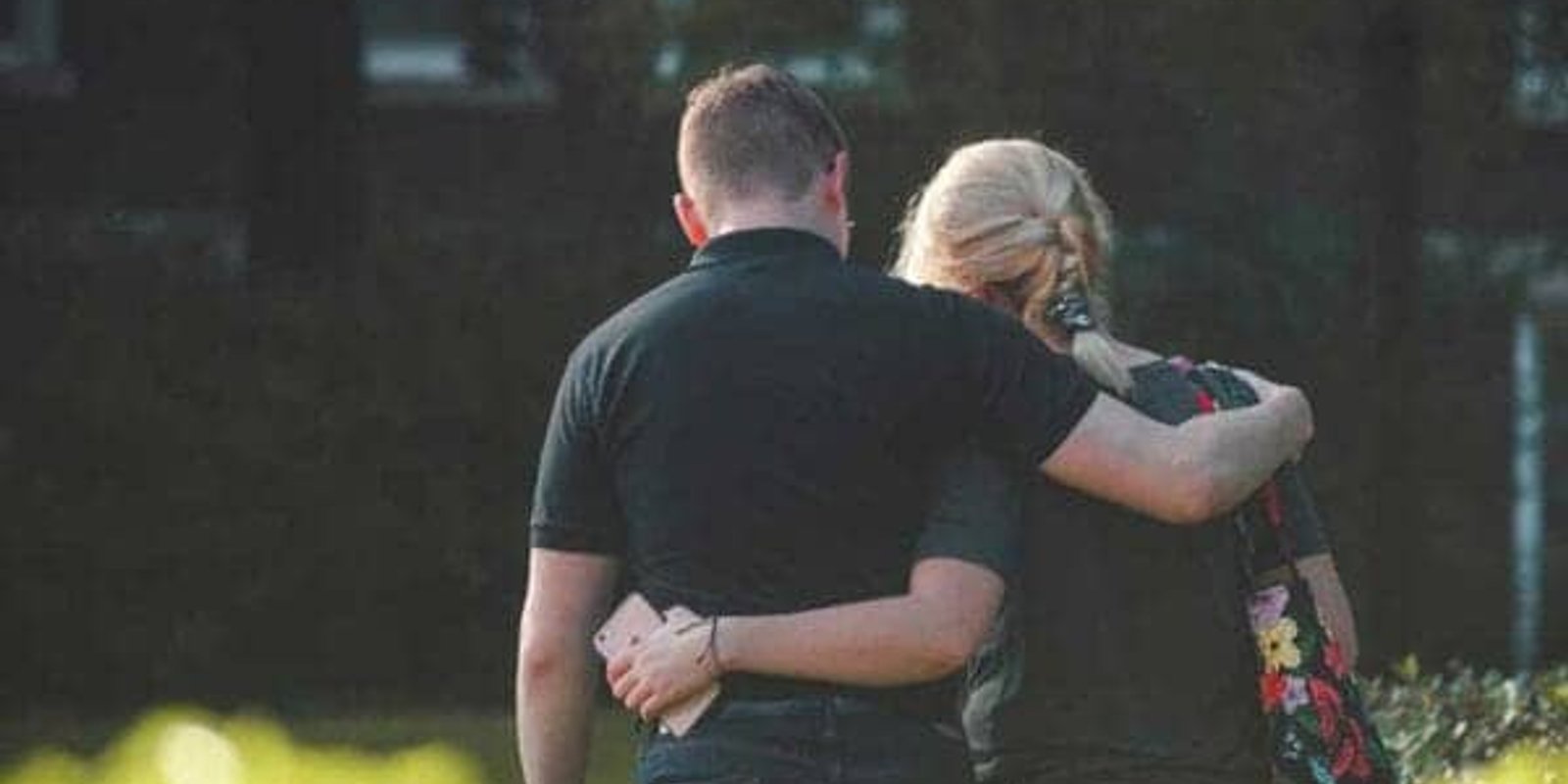Understanding the Arizona Wrongful Death Statute
Understanding the Arizona Wrongful Death Statute: A Comprehensive Guide for Families
The loss of a loved one due to an auto accident can be incredibly challenging, creating unforeseen emotional and financial difficulties. It is even more heartbreaking when a loved one’s death was caused by another party’s negligent or intentionally wrongful behavior. When a death occurs because of another party’s wrongdoing, certain family members, as defined by Arizona laws, or the deceased’s estate may maintain a legal action for wrongful death.
The Arizona wrongful death statute is governed by a statutory scheme enacted by the Arizona legislature. Wrongful death claims have a long history in Arizona, with the first statute outlining a wrongful death claim passed at the end of the 19th century, in 1887. Since its original passing, some aspects of the wrongful death statute have been amended. These amendments have made it easier for the statutory beneficiaries to file a legal claim for the wrongful death of a loved one due to vehicular negligence or wrongdoing.
A Brief History of Arizona Fatal Accident Laws
The main changes to the Arizona Wrongful Death Statute over the years have further defined who may bring a legal cause of action for wrongful death.
While the original Arizona wrongful death statute allowed for heirs of an estate to recover their damages for the wrongful death of the decedent, it was mandatory that a representative of the estate of the decedent filed the legal action on behalf of the heirs. Damages were awarded to the estate, and the representative would distribute any recovered money to the heirs as distributions from the estate.
1956 Amendments
Further amendments allowed decedents to pursue claims individually against the at-fault party.
Although minor changes were made to Arizona Wrongful Death Statute in the early 20th century, the most notable changes to the Arizona Wrongful Death Statute came in 1956. At this time the law was amended so that the decedent’s spouse could file a lawsuit themselves, seeking recoverable damages against the accused for the wrongful death. However, the deceased’s spouse maintained the right to appoint a representative. Other statutory beneficiaries, including the children or parents of the deceased, were still required to appoint a representative to maintain an action on their behalf.
If there were no surviving statutory beneficiaries, then a legal representative of the estate could bring an action on behalf of the estate against the person accused of causing the death.
2000 Amendments
Again in 2000, the Legislature of Arizona wrongful death statutes was amended. This amendment allows a surviving child, parent, or spouse to directly bring legal action against the accused without having to appoint a representative, although the appointment of a representative is still permissible.
The goal of the Arizona wrongful death statutes is to allow certain surviving beneficiaries to recover damages for the wrongful death of a person of a close relation. While the statutes have been amended over the years, the primary goal of the wrongful death laws has remained intact, as the changes made to the statutes have mostly pertained to the process for who may file a legal action against the wrongdoer, and how recovered damages are distributed.
Current Arizona Wrongful Death Statutes
A wrongful death resulting from an automobile accident is subject to this Arizona Wrongful Death Statute. When considering a wrongful death by an auto accident, the amendments to the statutes provide survivors with an easier way to recover damages directly from the person or corporation responsible for the negligence or wrongdoing that resulted in the casualty.
Currently, in Arizona, the statutory scheme for all wrongful deaths is comprised of three statutes, including Arizona Revised Statutes 12-611, 12-612, and 12-613. These laws outline who may be held liable for the death, who may maintain an action for the wrongful death, and to what types of compensation the beneficiaries may be entitled.
Who May Be Held Liable in an Action for Wrongful Death
Arizona Revised Statute 12-611 articulates who may be held liable for wrongful death.
The statute provides that a person or corporation whose negligent or wrongful act, or failure to act, causes the death of another human being may be held liable for their death. A statutory beneficiary may file any legal action against the wrongdoer that the deceased would have been able to file “if had death not ensued.” This is the case even if the wrongful act amounts to murder in the first or second degree or manslaughter.
Thus, if the at-fault party in an auto accident resulting in death could have been held liable for causing harm to the deceased “if had death not ensued,” so may they be held liable for the decedent’s wrongful death. Conversely, if the deceased would not have been able to maintain a legal action against the accused of wrongdoing, then an action for wrongful death may not be pursued by the decedent’s beneficiaries.
In instances where the deceased has, prior to death, sued the wrongdoer in an action for their auto accident-related injuries, and subsequently dies of the same injuries, the estate may not maintain an action in wrongful death if the case brought by the now deceased was adjudicated or settled.
Who May Maintain a Fatal Car Accident Lawsuit
Arizona Revised Statute 12-612 outlines:
- Who may maintain an action for wrongful death,
- How recovered damages must be distributed, and
- Under what circumstances, a party, otherwise named as a statutory beneficiary, may not recover any of the damages received for the wrongful death of a person.
An action for wrongful death must be in the names of those who have been expressly given the statutory right to sue as parties plaintiff. The parties listed below are referred to as the statutory beneficiaries and are the only parties authorized to pursue a wrongful death claim under Arizona statute.
Parties To a Fatal Car Accident Claim. Under the Arizona wrongful death statute, an action may be maintained by, or in the name of.
- The surviving husband or wife.
- A child of the deceased. Eligible children include both natural children and adopted children.
- The parent or guardian of the decedent. Eligible parents include natural parents, adoptive parents, and legal guardians. Further, either parent may maintain an action for the wrongful death of a child, including an unborn fetus.
- The representative of the deceased. The representative may file a legal claim on behalf of the surviving husband or wife, child, parent or guardian. If none of these beneficiaries survive the deceased, then the representative may file a lawsuit on behalf of the decedent’s estate. A personal representative can include any person who is competent and is named in a will, trust, or testamentary instrument as the individual to be the representative of the estate.
While all statutory beneficiaries have a right to bring a wrongful death claim, only one lawsuit may be maintained on behalf of all the beneficiaries. (See, Wilmot v. Wilmot, 203 Ariz. 565, 58 P.3d 507 (Ariz., 2002)).
If there are multiple statutory beneficiaries but only one who files the lawsuit for wrongful death, then they are deemed to have filed the lawsuit on behalf of all statutory beneficiaries, thereby undertaking the role of statutory plaintiff. After an award is granted, the statutory plaintiff becomes the trustee, and accordingly must distribute the award to all statutory beneficiaries. All statutory beneficiaries have a right to part of the award in proportion to the amount they suffered unless they have otherwise been disqualified from sharing in the benefit. (See, Lombardo v. Pollock, 21 Ariz.App. 537, 521 P.2d 636 (Ariz. App., 1974))
For attorneys, it is important to remember that in addition to representing the statutory plaintiff, they are representing all statutory beneficiaries. Therefore, an attorney owes them the same duty of care as the statutory plaintiff and must adhere to all ethical requirements with respect to them as well. Any settlement must be approved by all statutory beneficiaries. Defense counsel must also ensure that a settlement is agreed to by all statutory beneficiaries. Failure to get the approval for a settlement from all statutory beneficiaries may result in the settlement being thrown out.
- Recovery and Distribution. Any amount recovered in an action for wrongful death shall be distributed to the statutory beneficiaries listed above, as “parties plaintiff,” in proportion to the number of their damages. If the action and recovery are maintained on behalf of the decedent’s estate, the recovered damages are an asset of the estate and are distributed as such.
- Disqualification from Receiving Recovered Damages. If one of the statutory beneficiaries is found guilty, guilty except for insane, or pleads guilty or no contest to a violation of the law that caused the deceased’s death, then they are deemed to have predeceased the decedent and are barred from sharing in any compensation for the wrongful death. (See, Carrasco v. State, 19 P.3d 635, 199 Ariz. 494 (Ariz. App., 2001)).
What Type of Damages May a Party Recover in a Wrongful Death Action
Arizona Revised Statute 12-613, entitled “Measure of Damages, non-liability for debts of the decedent” outlines what types of damages may be recovered in an action for wrongful death.
A.R.S. 12-613 gives broad discretion to the jury to award damages. A jury may:
- Award any damages that it “deems fair and just with reference to the injury from the death to the surviving parties who may be entitled to recover.”
- Consider any aggravating or mitigating factors when deciding the amount of an award.
The broad language of A.R.S. 12-613 has been interpreted to allow juries to consider a wide range of evidence in deciding the amount of an award and has granted juries the discretion to award punitive damages under circumstances which call for such an outcome and where the statutory beneficiary has suffered actual damage as well.
A.R.S. 12-613 also limits creditors’ reach. An award granted to the statutory beneficiaries, such as children or parents, may not be used to pay off any debts or liabilities of the deceased. However, if the wrongful death action was maintained by a legal representative of the estate because no other statutory beneficiaries exist, then creditors may try to settle the deceased’s debt with their estate.
How Quickly Must an Action for Wrongful Death be Filed?
As with all legal claims based on civil law, a wrongful death action must be filed within a given time frame for a court to hear the case. This timeframe is known as the “statute of limitations.” Pursuant to Arizona Revised Statute 12-542, a statutory beneficiary who wishes to pursue a wrongful death claim must file the claim within two years of the decedent’s death. Since a party may be injured and live for some time before they pass away, the two-year time requirement for the statute of limitations does not begin to run until the person on whose behalf the claim is being made actually passes away.
For example, an individual may be injured in an auto accident but may live for three years before passing away from the injuries causing their death. Even though it has been three years since the deceased was injured, a statutory beneficiary can still file a wrongful death lawsuit against the party causing the injuries the victim succumbed to for two years after the death.
Further, a statutory beneficiary may file a wrongful death claim even if the decedent’s statute of limitations for a claim for their own injuries expired before their death. (See, Frongillo v. Grimmett, 788 P.2d 102, 163 Ariz. 369 (Ariz. App., 1989.))
How Best to Recover Under A Wrongful Death Claim
The laws governing wrongful death actions are complex. During a time when you are undoubtedly filled with grief, you do not need the added stress of dealing with legalities. Unfortunately, those responsible for your loved one’s death may not want to pay the money to which you may be entitled. Getting legal representation can help.
Contacting an attorney who will give you a free initial consultation and evaluate the strength of your case can save you time and aggravation. Having someone who knows the law and who will fight for your rights during this difficult time can make a difference in your legal outcome.
At Phoenix Accident and Injury Law Firm near you, we have more than 15 years of experience helping clients obtain compensation for the family members’ wrongful deaths. When you’re ready to talk, please contact our office to arrange a [free initial consultation by phone](tel: (480) 680-8125) from a fatal accident lawyer in Chandler, conveniently located in your area.
If you need medical treatment after a car accident contact Phoenix Accident and Injury Law Firm near you in nearby Chandler, AZ to speak with an experienced personal injury attorney. We provide personal injury legal services to clients in your area including Chandler, Gilbert, Mesa, Scottsdale, Tempe, and Peoria.











